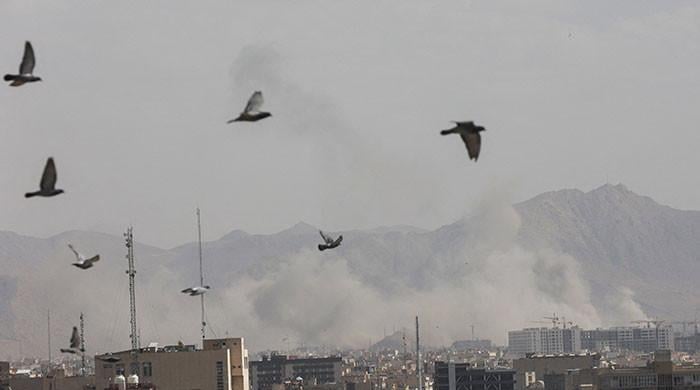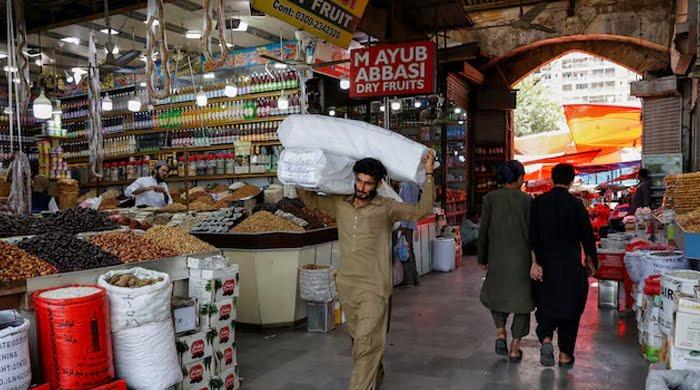The deadly cost of choice
When justice becomes inconsistent and contradictory, people circumvent formal system, turning instead to private vengeance
August 04, 2025

She cried out, "Nikkah kiya tha, zina nahi" ("We got married, we did not sin") just moments before she and her husband were brutally murdered by her own family.
Their crime? The answer is chilling in its simplicity: they chose what we call a "love marriage" — a union based on mutual choice rather than familial arrangement. For this decision, they paid the ultimate price: a form of extrajudicial execution that, in many legal systems, would constitute capital punishment.
In Pakistan, the notion of "dishonour" is often perceived as a legitimate ground for such killings. The recent incident in Balochistan points to the disturbing frequency of these acts in Central and South Asia, where cultural conventions continue to enable — if not outright promote — the reassertion of "honour" through violence.
This tragedy raises a fundamental question: Is Pakistan's justice system so fragile, or so compromised, that justice itself is displaced by fear of firearms?
Addressing this crisis requires a hard look at the fragmented nature of Pakistan's legal structure. It is not a unified body of law but a complex mosaic comprising State law, Shariah law, and tribal or customary codes–all operating simultaneously and often at cross purposes. This legal pluralism fosters confusion and mistrust, as individuals gravitate toward the system that aligns most closely with their values or self-interest, even if it contradicts state law.
Historically, similar tensions existed between the Courts of Equity and Common Law in England, culminating in the Earl of Oxford's Case (1615), which affirmed the supremacy of equity and ensured legal uniformity. Likewise, the US established a coherent legal framework grounded in constitutional principles. Yet, nearly eight decades after independence, Pakistan has failed to create such harmony.
When justice becomes inconsistent and contradictory, people circumvent the formal system, turning instead to private vengeance and extrajudicial mechanisms. This undermines the very foundation of the social contract: that citizens relinquish the right to personal retribution in exchange for protection and fairness from a central authority.
The jirga system directly contradicts this principle. Based on uncodified customs and operating beyond the constitutional framework, these extrajudicial forums routinely flout fundamental legal principles such as equality before the law, due process and protection of individual rights. They are especially harmful to women and marginalised communities, who are often silenced and subjected to cruel, inhumane rulings.
Jirgas have, in many cases, resolved disputes by ordering coerced child marriages or authorising punishments rooted in honour-based violence.
Such decisions blatantly violate constitutional guarantees of equality and non-discrimination. Even more disturbingly, these gatherings systematically exclude women from decision-making, prompting urgent questions: Why do men get to decide what is in women's best interest? Are women's choices, dignity and welfare entirely disregarded? Are they merely transactional entities bound to tribal custom?
These practices are fundamentally incompatible with both legal justice and the religious principles they claim to uphold. The Quran and the teachings of Prophet Muhammad (PBUH) emphasise the moral and spiritual equality of men and women. To claim religious legitimacy while ignoring these core teachings is both hypocritical and dangerous. Jirgas do not merely bypass the legal system; they undermine both secular and religious foundations of justice.
A further, deeply troubling aspect of this crisis is the total absence of legislative will. There is no existing law nor any serious proposal on the horizon that is aimed at dismantling the jirga system or curtailing its influence. Even worse is the open endorsement of such extrajudicial mechanisms by public officials.
Such declarations are a breach of constitutional duty. When elected officials who are tasked with upholding the law endorse unlawful forums, they erode the legitimacy of the state and betray the principles of democratic governance. This signals to citizens that justice is no longer a function of the courts but of informal gatherings of men, accountable to no law and driven by patriarchal tradition.
While parliament has largely avoided the issue, the Supreme Court of Pakistan took a strong stand in 2019, declaring the jirga system unconstitutional and recognising it as a parallel structure that violates fundamental rights. Yet, despite this landmark ruling, little has changed on the ground. The government's failure to enforce the judgment has left citizens, particularly women and marginalised groups, at the mercy of these unregulated forums.
Jirgas continue to issue "verdicts" based not on law but on patriarchal norms and personal bias, often resulting in severe human rights violations disguised as tradition or honour.
The violence in the Sheetal case is a consequence of a system that permits these illegal forums to function with impunity, while the state stands by. This is a profound moral collapse. How many more must die before constitutional protections are realised beyond mere rhetoric?
The persistence of jirgas is symptomatic of a broader issue: the state’s failure to assert control in many regions. Deeply embedded patriarchal norms, low literacy rates, and the widespread application of traditional law allow these extrajudicial bodies to flourish. Rather than being an anomaly, they are a byproduct of a deeper institutional vacuum. And in these spaces, it is the most vulnerable, especially women, who suffer.
To dismantle this paradigm, Pakistan must draw lessons from regional examples — India, for instance — on how to dismantle tribal impunity through democratic integration. Promoting local governance, conducting grassroots elections, integrating legal frameworks at the community level and reinforcing formal judicial mechanisms are critical steps. Enacting strict penalties for participating in or enforcing jirga rulings could have a powerful deterrent effect. These measures would restore public confidence in rule of law and re-establish state authority.
It is a stain on our legal history that, until 2018, the Frontier Crimes Regulation (FCR) gave legal cover to extrajudicial actions in former Fata. Though formally repealed, its legacy remains deeply ingrained in our legal consciousness. Moving forward, parliament must pass comprehensive legislation to ban jirgas, criminalise their proceedings and strengthen access to formal justice — especially in rural and tribal regions.
In a country where over half the population is illiterate, jirgas offer a patriarchal sanctuary for men to carry out egregious abuses under the guise of honour. These assemblies are unconstitutional and morally reprehensible. Unless the state reasserts the primacy of law over tribal custom, every instance of violence becomes a national failure.
The time for reform is now. Through targeted legislation, accountability mechanisms and nationwide awareness campaigns, Pakistan must act before more lives are lost to silence and inaction.
Disclaimer: The viewpoints expressed in this piece are the writer's own and don't necessarily reflect Geo.tv's editorial policy.
The writer is a law student.
Originally published in The News











